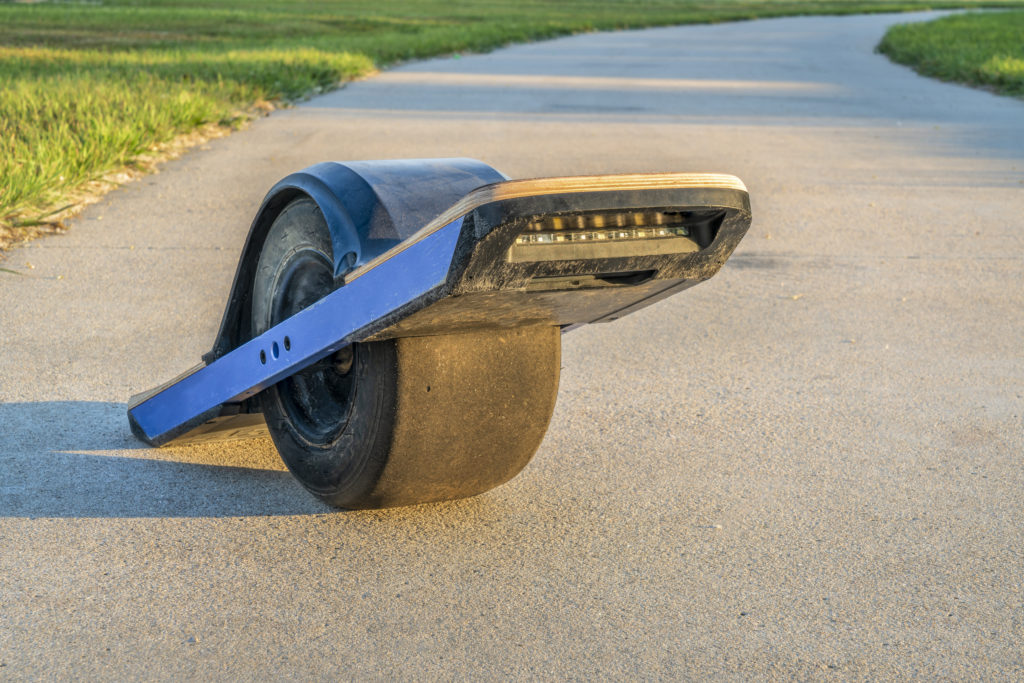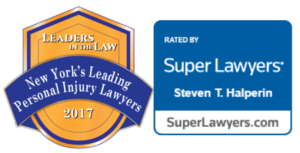New York onewheel Attorney
Riding a Onewheel is pure joy and excitement; and we know this from experience. It is fast, agile, and capable of taking on almost limitless terrain. With that fun, riders must expect and accept a certain amount of danger. As with any wheeled device, riders can hit something on the road that causes them to lose their balance; they can crash into other people, vehicles or even stationary objects; and they can be hit by others who aren’t looking out for them. But unlike other wheeled devices, a Onewheel has been known to come to a dead stop without warning to its rider. In Onewheel parlance, these events are called “nosedives.” If something goes wrong or malfunctions in virtually any other wheeled device, the wheels will continue to rotate so that the rider has the chance of slowly coming to a stop or jumping off the device. A nosedive on the Onewheel leaves its rider with no chance of recovery. When a One wheel nose dives, its operator is on the ground – hitting it with the same speed that its operator was riding moments earlier. Riders who have experienced these nosedive accidents should contact a Onewheel accident attorney, as they may have a claim against Future Motion and its products.

If you have sustained injuries on a Onewheel device after a nosedive, or for any other reason, it may or may not be due to user error. Our network of attorneys nationwide are experienced in handling injury claims resulting from falls off Onewheel devices, and are able to advise you of options you may not expect after an injury – such as compensation. We are currently reviewing potential cases nationwide where nosedives and other falls from Onewheel devices have caused severe injuries or fatalities. If you have been hurt while riding a Onewheel, call us at (212) 935-2600 or fill out the form below for a free, no-obligation consultation to speak with an experienced Onewheel accident attorney.
WHAT IS A ONEWHEEL?
Onewheel devices, including the Onewheel XR and Onewheel Pint, are battery-powered, self-balancing recreational transportation devices, often described as a “one-wheeled electric skateboard.” They are made by Future Motion, Inc. in Santa Cruz, California, and are capable of reaching speeds much higher than the 19 mph reported by the company. To use a Onewheel device, riders place their feet on each side of the large wheel. Removing a foot disengages the device.
Similar to “hoverboards,” Onewheel devices accelerate based on the rider’s balance; riders lean forward to accelerate the device, lean backward to decelerate, and use “heel-toe pressure” to lean in the direction they wish to turn.
HOW IS THE ONEWHEEL DANGEROUS?
Several design defect claims have been made throughout the United States against Future Motion, Inc. resulting from catastrophic injuries and fatalities to riders.
Onewheel devices are equipped with a “pushback” feature, meant to warn the rider of low battery, overcharging, and unsafe speeds. Once the Onewheel device has reached its maximum speed or low battery, the board is meant to push up to warn the rider. Although this design feature is meant for the rider’s safety, many riders involved in serious accidents report never feeling pushback – either because pushback never occurred or because pushback was not sufficient to be felt by riders.
If pushback is not felt by riders, or does not occur, the board will come to a complete and abrupt stop no matter the speed it is being operated. We are not physicists, but know that if a rider is moving 19 mph on his or her Onewheel and the Onewheel nosedives, the rider will be propelled to the ground directly in front of the board at 19 mph. Even far less speed can cause severe and catastrophic injuries to riders.
COMMON INJURIES CAUSED BY ONEWHEEL SUDDEN STOPS
The aforementioned severe and catastrophic injuries include the following:
- Concussions and other Traumatic Brain Injuries
- Head, Neck, and other Spinal Cord Injuries
- Deep Lacerations
- Broken Bones
- Significant Repair Surgeries
- Months and years of recuperation
- Death
In one notable case, a Texas man died in a Onewheel nosedive accident. His ejection from the board caused fatal head trauma, and he was pronounced dead at the hospital.
WHAT TO DO AFTER A ONEWHEEL ACCIDENT
- Take Photos, Preserve Evidence and Identify Witnesses: Use your cellphone to take photos of the scene and your injuries. Preserving evidence, including your Onewheel board, and noting any relevant facts of your accident can help strengthen your Onewheel claim.
- Seek Medical Attention: If you have sustained injuries from your Onewheel, you should seek medical attention. Have a physician assess your injuries, and be sure to hold on to medical reports, expenses, and other relevant documents related to your injuries.
- Preserve the Onewheel: Do not alter or dispose of your Onewheel device. If you sustain injuries, you must preserve the device in the condition that it was when you are injured. Do not under any circumstances use the device or permit anybody to use the device or re-charge the device. Preserve the device, charger, literature, packaging and phone application for examination by your attorneys.
- Contact an Attorney: Contact the Onewheel accident attorneys at Halperin, Halperin & Weiskopf, PLLC. to discuss your accident and injuries. Our attorneys can conduct a thorough investigation to identify the cause of the injury and file a claim on your behalf.
WHAT TYPES OF COMPENSATION ARE AVAILABLE?
- Pain and Suffering: most jurisdictions allow for significant compensation for pain and suffering when injuries are due to the fault of another, including injuries resulting from defective/dangerous products.
- Medical Expenses: If your Onewheel accident requires medical treatment, you may be eligible for compensation for the diagnosis and treatment of your injuries.
- Past and Future Lost Wages: You may be limited in your mobility or capacity after a Onewheel accident. Such injuries may entitle you to compensation for any past or future wages you may have lost from your injuries.
- Property Damage: Compensation may be awarded to pay for any property damage from your Onewheel accident.
- Loss of Financial Support and Guidance: You may be compensated if a Onewheel accident results in the death of a parent, spouse, or head-of-household.
WHY CHOOSE HALPERIN, HALPERIN & WEISKOPF, PLLC.?
Halperin, Halperin & Weiskopf, PLLC. has successfully filed countless products liability personal injury claims related to defective medical devices, sports equipment, and other consumer products for alleged design, manufacturing, and marketing defects. We are familiar with the Onewheel design and the reasons a Onewheel device may not work properly. We also have a vast network of attorneys and experts nationwide that are ready to help. If we cannot handle your case personally, we will make sure to put you in good hands.
The attorneys at Halperin, Halperin & Weiskopf, PLLC., and our network of attorneys nationwide, are seasoned trial attorneys, meaning we will take your Onewheel case to trial if you are not offered the compensation you deserve for your injuries.
CONTACT A ONEWHEEL ATTORNEY
Don’t wait to contact an experienced lawyer, as there is often a time limit to commence your lawsuit. The Statute of Limitations for New York product liability claims only extends three years from the accident date. This means you only have three years from the date of your injury to file your claim. Our attorneys at Halperin, Halperin & Weiskopf, PLLC. can help you gather the appropriate materials so that you can make a strong claim in your case. Our injury and products liability attorneys have proven results in securing substantial settlements for our clients, and are ready to fight for you.
Call us today at (212) 935-2600 or fill out the form below for a free, no-obligation consultation with one of our experienced Onewheel accident attorneys.
FAQs
Can I file a Onewheel claim if I’m partially responsible for my accident?
Just because you were partially at fault for your Onewheel accident doesn’t mean you can’t file a claim. You still may be entitled to compensation for your injuries. For more information, contact an attorney at Halperin, Halperin & Weiskopf, PLLC.
What if I can’t afford a Onewheel attorney?
That’s impossible. Our attorneys at Halperin, Halperin & Weiskopf, PLLC. operate on contingency arrangement, meaning we won’t require any payment until we get you the justice and compensation you deserve.
